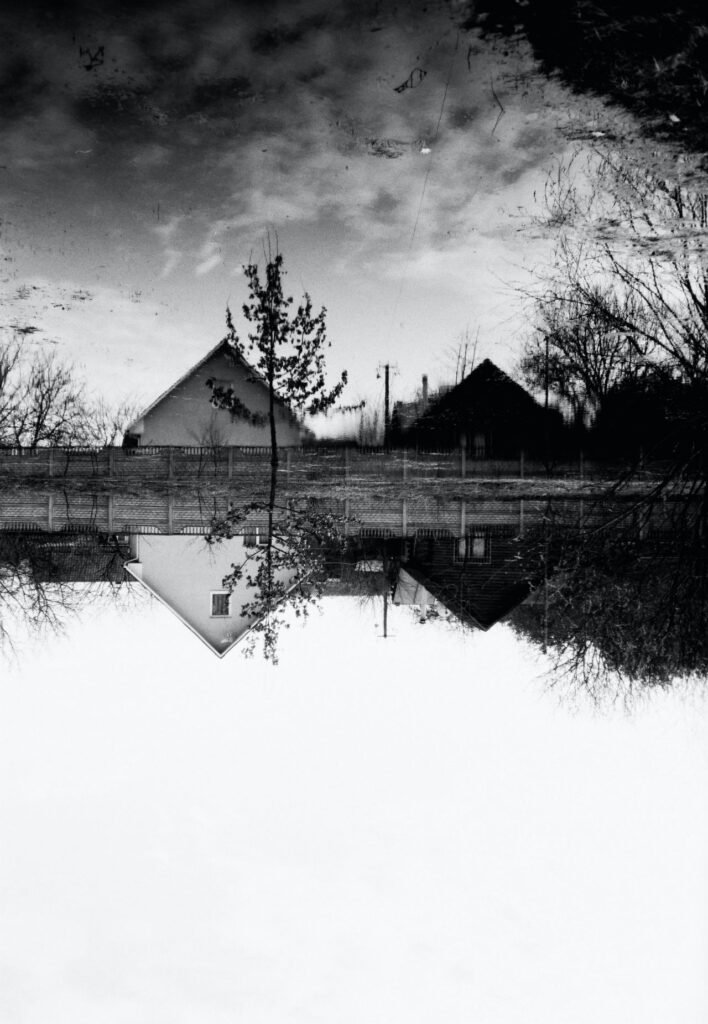By Dr. Charles Obiajulu Ugwu
Scene One: The Lie in the Break Room
A senior HR executive, once the crown jewel of the company’s people-first rebrand, sits alone in her office. Her eyes are bloodshot from another 14-hour week punctuated by the monotony of performance dashboards, burnout surveys, diversity metrics, and increasingly hollow strategy meetings. She just concluded a round of layoffs. The tech team, leaner. The admin pool, gutted. And her own department? Told to “automate empathy.”
Outside her door, a junior marketing analyst says to a colleague over coffee, “They don’t really do anything, do they? HR just forwards memos.”
She hears it. She says nothing.
And in that moment, the gap between function and fiction yawns open. Because HR, as most know it today, is not broken it becoming or has become irrelevant.
This is not merely about dysfunction. It is about institutional cowardice. About hiding behind compliance when conviction is needed. About choosing reputation over reality. The lie in the break room is not that HR does nothing. The lie is that anyone still believes HR matters as it currently exists.
The Age of Elegant Collapse
We’re not in the Fourth Industrial Revolution. We’re in a cognitive avalanche. The present doesn’t move, it convulses.
This is not a “FLAUX” world. That sanitized acronym (Fluid, Lateral, Ambiguous, Uncertain, Exponential) is marketing dressing on systemic disintegration. What we’re living through isn’t an era of change. It’s the unveiling of false stability. Institutions that relied on industrial rhythm—predictability, repeatability, optimization, are now contorting under the weight of complexity they were never built to carry.
Forecasting is theatre. Five-year plans are hallucinations. Strategy decks are historical fiction. The myth of scalable certainty is collapsing and the enterprise is gasping for oxygen.
What remains? Not automation. Not AI. Not another org redesign. What remains is the human—fallible, improvisational, complex. And the only department supposedly tasked with stewarding this human core? Human Resources.
But where is HR in this existential collapse? Too often: asleep at the wheel. Or worse, administering the crash.
HR’s Professional Suicide
HR had a soul once. It brokered labor negotiations. It safeguarded dignity. It read the room before executives even entered it. But instead of maturing into the philosopher-leader of the enterprise, HR chose another path: certified irrelevance.
Over the past 40 years, HR mutated into a bureaucratic chimera: part risk management, part process police, part cultural PR. What could have evolved into the enterprise’s human conscience instead calcified into a paper-pushing relic. When strategic stakes rose, HR reached for policy binders.
Its slow suicide came dressed in professionalization: ISO standards, SPHR credentials, SHRM-approved playbooks. These were not signals of evolution. They were symptoms of withdrawal from courage, from conviction, from relevance.
You want evidence? Look around. Employees don’t fear HR. They ignore it. Middle managers treat HR like an IT support function: transactional and invisible until something breaks. Executives keep HR in the room but out of the loop. And workers? Workers see HR as a compliance mechanism wrapped in language about “culture.”
HR didn’t lose power. It gave it away.
The Metrics of Malaise
Let’s stop romanticizing data when it screams betrayal:
59% of global workers are disengaged (Gallup, 2023)
40% are considering leaving their jobs not for money, but for meaning (McKinsey, 2022)
Over 44% of core job skills will be obsolete within two years (WEF, 2023)
These aren’t numbers. They are diagnoses. HR keeps producing wellness programs while employees quietly exit. We launch engagement dashboards while purpose evaporates. We throw bonuses at people who are spiritually bankrupt.
What do we call a function that’s present at every crisis but unable to prevent, predict, or transform any of them? We call it obsolete.
The Great Abdication
It didn’t happen all at once. HR didn’t collapse in a single scandal. It simply stopped fighting.
It stopped fighting for real feedback systems and settled for annual reviews.
It stopped challenging toxic leadership and outsourced conflict resolution to coaching apps.
It stopped defending humanity and started defending liability.
HR became risk-averse in a world that punishes passivity.
Today, when a scandal breaks or morale tanks, leadership calls HR. But they don’t ask for vision. They ask for mitigation. And HR responds with checklists, not clarity.
Here’s the truth: HR didn’t fall. It retreated.
What Real HR Would Look Like (If We Had the Guts)
It’s time to bury the fantasy of HR as the gentle steward of culture. That HR is dead. And good riddance.
The HR of the future is not a department—it is a radical function of clarity and confrontation. Here’s what that would look like:
1. Be the Philosopher of the Enterprise
HR should be the one function that interprets meaning in a company obsessed with metrics. Not just retention rates and succession plans but the deeper questions:
What is this company becoming?
Why should anyone stay?
Who are we when no one is watching?
When Microsoft’s CHRO Kathleen Hogan reoriented their entire performance culture around growth mindset, it wasn’t a rebrand. It was a philosophical reset: from scoring to evolving. That is what it means to think human at scale.
2. Break the System to Save It
Too many “transformation initiatives” are polite makeovers. Real change is ugly. It involves dismantling systems that were once sacred: job ladders, top-down reviews, rigid pay bands.
Take Unilever’s Flex Experiences—short, cross-functional stretch assignments that make learning a lived rhythm, not a training module. It disrupted silos. It rewired habits. It pissed off managers. That’s how you know it worked.
3. Become the Organizational Conscience
HR must become the function that can say no to power and do so audibly, visibly, and repeatedly. If HR can’t call out racism in leadership, or name the ethical cost of a strategy, it is not a function. It is a liability in disguise.
Trust isn’t built by “employee listening platforms.” It is built by having the guts to confront a toxic VP and survive the fallout. When Patagonia embedded activism into its organizational DNA, it wasn’t branding. It was conviction. That’s what conscience looks like.
4. Champion the Unmanageable Human
The most powerful insight of our age is this: humans are not scalable. They’re inconsistent, emotional, morally complex. And yet, HR keeps trying to process them like spreadsheets.
Stop standardizing creativity. Stop managing resilience. Let humans be wild and unpredictable. Let them be what the future demands: adaptive anomalies.
5. Weaponize Trust
Trust is a currency. Most organizations are bankrupt. HR should be the only unit that doesn’t lie. The only one that names the cost. The only one that doesn’t gaslight employees in a culture deck while planning a re-org.
You don’t build trust by saying you’re “transparent.” You build it by risking power.
The Five Reckonings
To rise again, HR must be crucified in five ways:
1. From Career Ladders to Cognitive Maps
Careers are not linear journeys. They are messy, winding, irrational explorations. Scrap job specs. Build cognitive maps that let people see what they could become, not just what they were hired to do.
2. From Interventions to Operating Systems
Learning isn’t a one-day event. It’s the oxygen of future relevance. Embed it in the flow of work. Structure teams for stretch. Create ecosystems where evolution is default.
3. From Culture Decks to Daily Drama
Culture is not a brand value. It’s what gets punished and rewarded in the hallway. HR must be the narrator of this drama not the marketing team.
4. From Headcount to Soulcraft
Stop calling humans “resources.” They are sources of energy, intelligence, and unpredictability. HR must stop extracting and start cultivating. Think like gardeners. Or prophets.
5. From HR as a Department to HR as a Verb
If HR needs a department to function, it’s already failed. HR should be a practice embedded in leadership, operations, product. If it’s not everywhere, it will soon be nowhere.
If HR Fails Again
If HR doesn’t change, it won’t be because of resistance. It’ll be because of irrelevance. Here’s what will happen:
AI will manage payroll, benefits, and scheduling.
Consultants will redesign learning ecosystems.
Operations will control workforce planning.
Slack channels will crowdsource culture.
And what will HR do? Issue surveys. Administer “well-being” apps. Host webinars on emotional intelligence.
It won’t be called HR anymore. It will be called Noise.
What Comes Next: Burn the Uniform
HR must shed its polite skin. It must stop branding itself as “strategic” and start becoming essential.
That means:
Telling the CEO their strategy is morally bankrupt.
Firing leaders who destroy trust, no matter their KPIs.
Defining performance not by output, but by integrity under pressure.
Daring to say: “We don’t need more alignment. We need more truth.”
HR has the chance to become the most dangerous department in the company. The one that translates complexity into clarity. The one that navigates ambiguity with moral imagination. The one that doesn’t flinch.
But first, it must burn.
Let the old HR die. Let it be mourned. So something radically human can be born.
About the Author: Dr. Charles Obiajulu Ugwu is a contrarian strategist and regenerative systems architect who works at the collision point of humanity, cognition, and leadership. He believes the future of work depends not on technology, but on moral imagination and that HR must either evolve or disappear.
Follow us on all social media platforms @dailyquery for news and analyses around the globe.



























